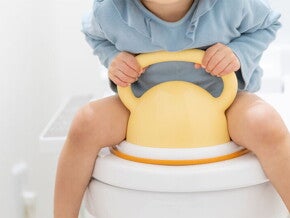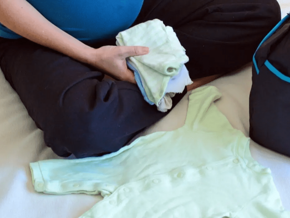
What is Bruxism?
“Bruxism” is the medical term for the grinding of teeth or the clenching of jaws. Many kids have it (2 to 3 out of every 10 will grind or clench, experts say), but most outgrow it. Bruxism often happens during deep sleep phases or when kids are under stress.
Causes of Bruxism
Experts aren't always sure why bruxism happens. In some cases, kids may grind because the upper and the lower teeth aren't aligned properly. Others do it as a response to pain, such as from an earache or teething, since grinding their teeth might help ease discomfort. Many kids outgrow these fairly common causes for grinding.
Stress — usually nervous tension or anger — is another cause. For instance, a child might worry about a test at school or a change in routine (e.g. a new teacher). Even arguing with parents and siblings can cause enough stress to prompt teeth grinding or jaw clenching. Some kids who are hyperactive also experience bruxism. And sometimes kids with other medical conditions (such as cerebral palsy or who take certain medicines) can develop bruxism.
Effects of Bruxism
Many cases of bruxism go undetected with no ill effects, while others cause headaches or earaches. Usually, though, it's actually more bothersome to other family members because of the grinding sound.
In some cases, nighttime grinding and clenching can wear down tooth enamel, chip teeth, increase temperature sensitivity, and cause severe facial pain and jaw problems, such as TMJD or temporomandibular joint dysfunction. Most kids who grind, however, don't have TMJ problems unless their grinding and clenching happens a lot.
Diagnosing Bruxism
Lots of kids who grind their teeth aren't even aware of it, so it's often siblings or parents who identify the problem.
Some signs to watch for:
- grinding noises when your child is sleeping
- complaints of a sore jaw or face after waking up in the morning
pain with chewing
If you think your child is grinding his or her teeth, visit your dentist. She will examine the teeth for chipped enamel and unusual wear and tear, and spray air and water on the teeth to check for unusual sensitivity.
If damage is found, the dentist may ask your child a few questions, such as:
- How do you feel before bed?
- Are you worried about anything at home or school?
- Are you angry with someone?
What do you do before bed?
The exam will help the dentist see whether the cause is anatomical (misaligned teeth) or psychological (stress) and come up with an effective treatment plan.
Treating Bruxism
Most kids outgrow bruxism, but a combination of parental observation and dental visits can help keep the problem in check until they do. In cases where the grinding and clenching make a child's face and jaw sore or damage the teeth, dentists may prescribe a special night guard. Molded to a child's teeth, the night guard is similar to the protective mouthpieces worn by athletes. Though a mouthpiece can take some getting used to, positive results happen quickly.
Helping Kids With Bruxism
Whether the cause is physical or psychological, kids might be able to control bruxism by relaxing before bedtime — for example, by taking a warm bath or shower, listening to a few minutes of soothing music, or reading a book. For bruxism that's caused by stress, ask about what's upsetting your child and find a way to help. For example, a kid who is worried about being away from home for a first camping trip might need reassurance that mom or dad will be nearby if needed. If the issue is more complicated, such as moving to a new town, discuss your child's concerns and try to ease any fears. If you're concerned, talk to your doctor.
In rare cases, basic stress relievers aren't enough to stop bruxism. If your child has trouble sleeping or is acting differently than usual, your dentist or doctor may suggest further evaluation. This can help find the cause of the stress and a proper course of treatment.
How Long Does Bruxism Last?
Most kids stop grinding when they lose their baby teeth. However, a few kids do continue to grind into adolescence. And if the bruxism is caused by stress, it will continue until the stress eases.
Preventing Bruxism
Because some bruxism is a child's natural reaction to growth and development, most cases can't be prevented. Stress-induced bruxism can be avoided, though. So talk with kids regularly about their feelings and help them deal with stress. Taking kids for routine dental visits can help find and treat bruxism.
Reference
Compiled and reviewed for American dental journal by Kenneth Hirsch, DDS
July 2015
About The Expert
DR. JOYCELYN FRANCES ESGUERRA, Dentist
Dr. is the dental and oral healthcare expert of Wyeth Nutrition parenTeam. Having run a private clinic for more than 20 years now, Dr. Joycelyn Esguerra has developed an expertise in orthodontics, TMJ orthopedics, cosmetic dentistry, and biological dentistry. As a dentist, her work has included educating patients on oral care, assessing teeth and diagnosing patients' dental conditions, evaluating treatment options and providing treatment plans to patients, and carrying out clinical treatments such as restoring teeth affected by decay and treating gum disease.
Dr. Esguerra received her degree of Doctor of Dental of Medicine from the College of Dentistry at the University of the East in Manila. She also completed a 6-month long comprehensive preceptorship program on Functional Jaw Orthopedics and TMJ Dentistry at the TMJ Integrative Dentistry Academy of the Philippines.
An active member of the medical community, she has served the Mandaluyong City Dental Chapter in various roles, including President, Executive Vice President, and Board of Director. Dr. Esguerra is also part of the Philippine Dental Association (PDA) and the TMJ Integrative Academy of the Philippines.
The views and opinions expressed by the writer are his/her own, and do not state or reflect those of Wyeth Nutrition and its principals.




























